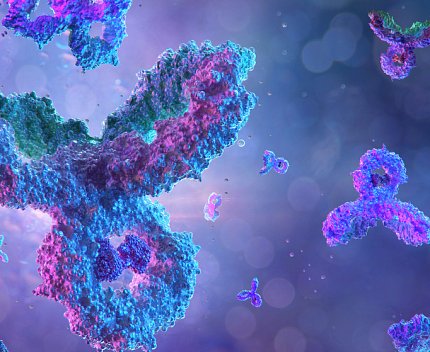Scientists Pinpoint Mechanisms Associated with Severe Covid-19 Blood Clotting

Photo: SHUTTERSTOCK/CORONA BOREALIS STUDIO
After studying blood samples from 244 patients hospitalized for Covid-19, a group of researchers, including NIH investigators, identified “rogue antibodies” that correlate with severe illness and may help explain mechanisms associated with severe blood clotting.
The researchers found circulating antiphospholipid antibodies, which can be more common among people with autoimmune disorders, such as lupus. However, these “autoantibodies,” which target a person’s own organs and systems, can also be activated in response to viral infections and activate other immune responses.
Scientists compared the blood samples to those from healthy controls and found the Covid-19 samples contained higher levels of the antibody IgG, which works with other immune cells, such as IgM, to respond to immune threats. Higher levels of IgG were also associated with Covid-19 disease severity, such as in patients who required breathing assistance.
IgG helps bridge a gap between innate and adaptive immune responses—a process that helps the body recognize, respond to and remember danger. In normal cases, these features help protect the body from illness and infection. However, in some cases, this response can become hyperextended or altered and exacerbate illness.
When researchers removed IgG from the Covid-19 blood samples, they saw molecular indicators of “blood vessel stickiness” fall. When they added these same IgG antibodies to the control samples, they saw a blood vessel inflammatory response that can lead to clotting.
Since every organ has blood vessels in it, circulating factors that lead to the “stickiness” of healthy blood vessels during Covid-19 may help explain why the virus can affect many organs, including the heart, lungs and brain.
The researchers noted future studies could screen Covid-19 patients for autoantibodies at earlier points of infection to help identify patients at risk for extreme blood clotting, vascular inflammation and respiratory failure. Corresponding studies could then assess potential treatments to protect blood vessels or fine-tune the immune system.
